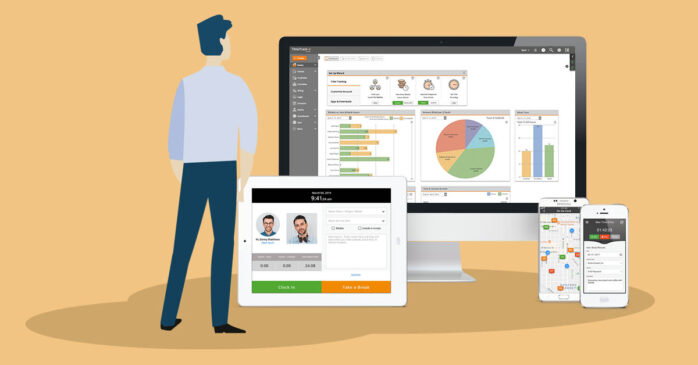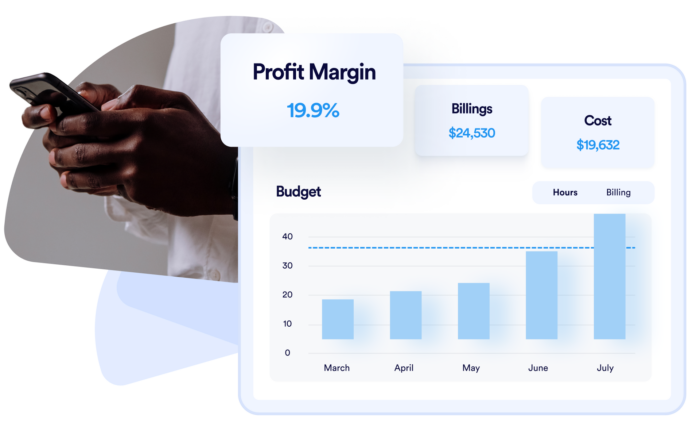
As our workspaces continue to evolve and adapt to the modern digital era, remote work is becoming more firmly entrenched in the global business culture. Companies worldwide are increasingly embracing this flexible work model, primarily due to its myriad advantages such as greater access to a global talent pool, significantly reduced overhead costs, increased employee satisfaction, and often, enhanced productivity.
Despite the benefits, remote working does present unique challenges, many of which revolve around maintaining clear communication and efficient workflows across decentralized teams. Among the most significant of these is the management of time and ensuring accountability among remote workers. Effectively monitoring the work hours, productivity, and adherence to set schedules of team members scattered across different time zones becomes an intricate task. This is where the judicious use of time tracking software becomes an indispensable asset, aiding team leaders and managers in successfully overcoming these hurdles and ensuring optimal team performance.

Understanding the Challenges of Remote Work
One of the primary challenges that managers and team leaders face with remote work is ensuring that their teams are utilizing their time effectively. With a remote workforce, traditional methods of time management, like walk-by supervisions or physical clock-in systems, no longer apply. Remote work offers a level of freedom and flexibility that in-office jobs can’t match, but it also means that workers are largely on their honor to manage their own time and stay productive. This independence demands a heightened sense of responsibility and self-discipline from employees, making it a challenge to track and assess performance accurately.
Adding to this, another difficulty is maintaining accountability. With the team spread out, possibly across different time zones, it’s not always easy to ensure everyone is working on the tasks they’re supposed to be and delivering them on time. These scattered schedules can complicate coordination, impede communication, and result in potential delays or misunderstandings about work responsibilities. Consequently, this creates a pressing need for tools and strategies that can ensure effective time management and foster accountability in a remote work setting.
The Power of Time Tracking Software
To effectively navigate these challenges, time tracking software becomes an indispensable tool. Designed to adapt to the nuances of remote work, such software not only helps in recording the time spent by each team member on their tasks, but also assists in understanding work patterns, measuring productivity, and identifying areas for improvement. By providing a holistic view of a team’s performance, it aids in making informed management decisions and designing effective workflows.
Time tracking software provides a transparent way of recording and analyzing work hours. Harnessing advanced technology, it can be programmed to automatically record the time when a worker starts a task, pauses, or finishes it, thereby providing real-time data. This eliminates the need for manual entry, making the whole process more efficient and accurate. Furthermore, it can offer insightful data on task durations, breaks, and overtime, promoting a balanced and productive work environment.

Improving Productivity and Accountability with Time Tracking Software
With time tracking software, businesses can gain valuable insights into their remote workforce’s productivity levels. It generates comprehensive reports that capture essential metrics, providing a detailed understanding of how time is spent across different tasks and projects. By analyzing this data, managers can identify areas where productivity may be lacking, discover bottlenecks, and take proactive steps to address these issues, thus paving the way for improved efficiency and output.
In addition, time tracking software can greatly enhance accountability among remote teams. By maintaining a clear and accurate record of the time spent on various tasks, team members can be held accountable for their productivity levels. This objective data acts as a catalyst for productive discussions around performance and time management. The system helps build a culture of transparency and responsibility, where everyone is aware of their contributions and their value to the team. In the process, it encourages a sense of ownership, fostering a more motivated and dedicated workforce.
Choosing the Right Time Tracking Software
Choosing the right time tracking software for your remote team necessitates careful consideration. A suitable platform should be user-friendly, feature-rich, and capable of delivering accurate, insightful reports, enhancing your team’s efficiency and productivity. It’s paramount to select software that’s easy to navigate, intuitively designed, and requires minimal training time.
Moreover, the platform should offer features that cater specifically to the unique needs of remote teams. This includes automatic time tracking, detailed productivity reports, and seamless integrability with other tools your team might already be utilizing for project management or communication.

Final Thoughts
As the trend towards remote work continues to flourish, buoyed by the need for enhanced flexibility and a larger global talent pool, tools that facilitate effective management of remote teams are not just beneficial, but crucial. Time tracking software is a paramount tool within this arsenal, empowering businesses to manage time and ensure accountability amongst their dispersed workforce. It grants managers insightful visibility into their team’s productivity, optimizing efficiency and encouraging adherence to deadlines.
Furthermore, it creates an environment of self-responsibility among team members, driving them to take ownership of their time and work deliverables. The data-driven insights garnered from such software help pinpoint workflow bottlenecks, identify peak productivity hours, and provide the necessary information to fine-tune work processes. Time tracking software, thus, plays a vital role in the digital transformation of work, fostering transparency, enhancing efficiency, and contributing to overall business success in an increasingly remote work landscape.
Investing in robust time tracking software can provide businesses with the insights they need to drive productivity, boost efficiency, and foster a culture of accountability. To explore more about how time tracking software can transform your remote work management, visit https://www.monitask.com/en/home/time-tracking-software.











